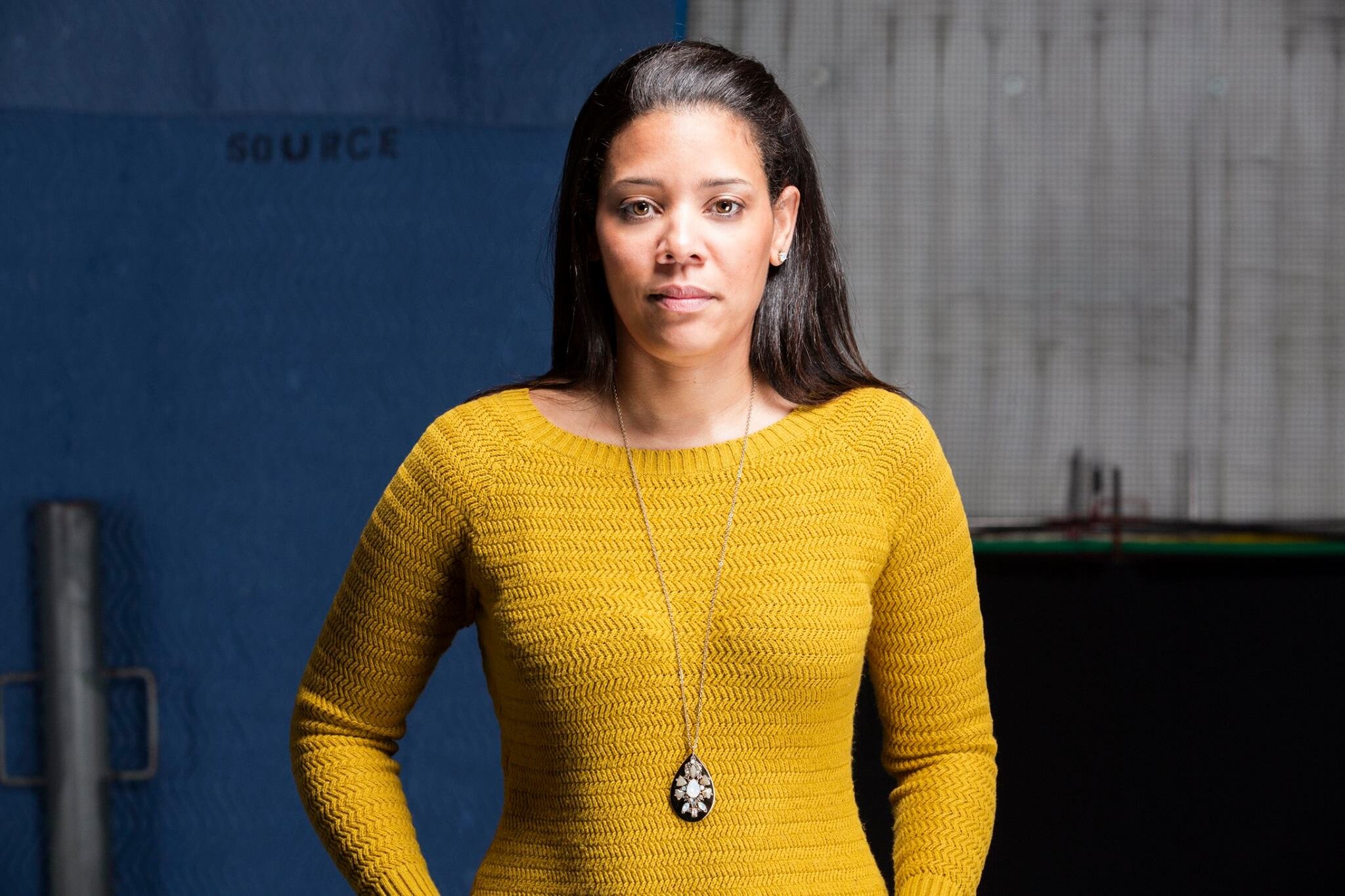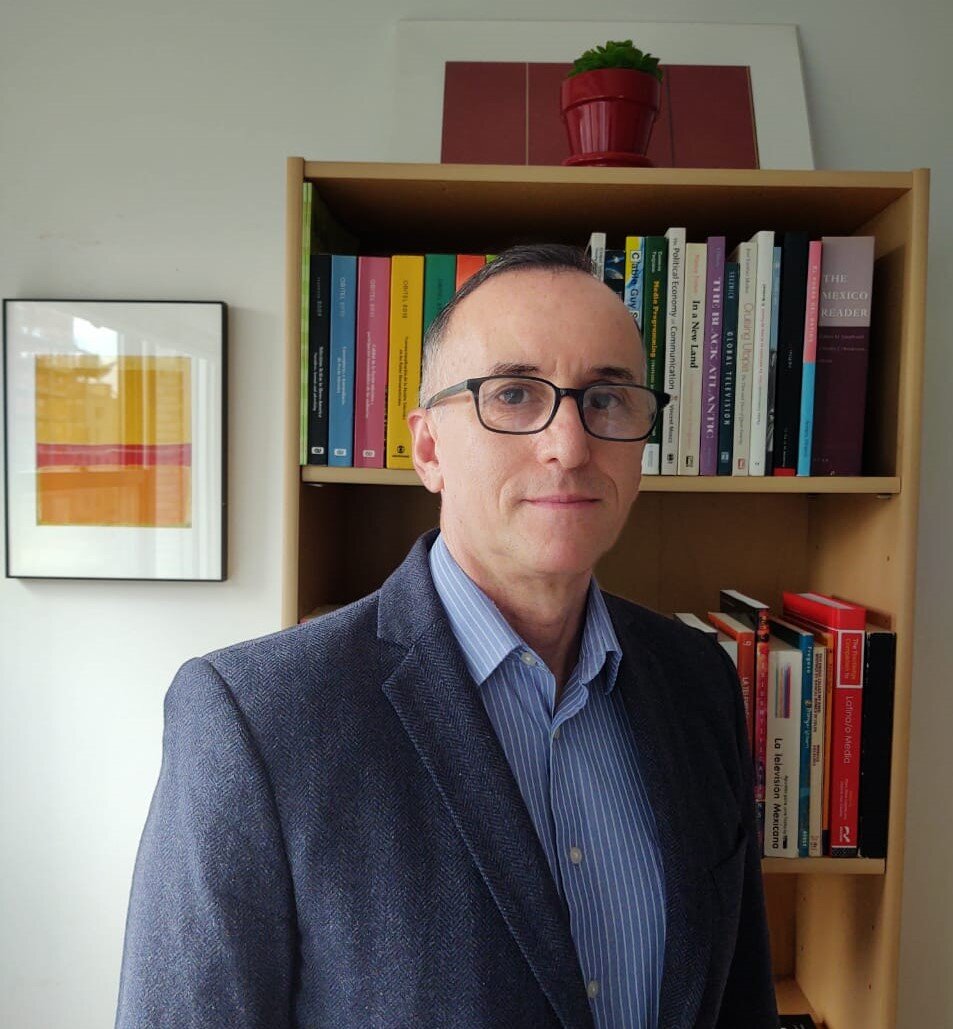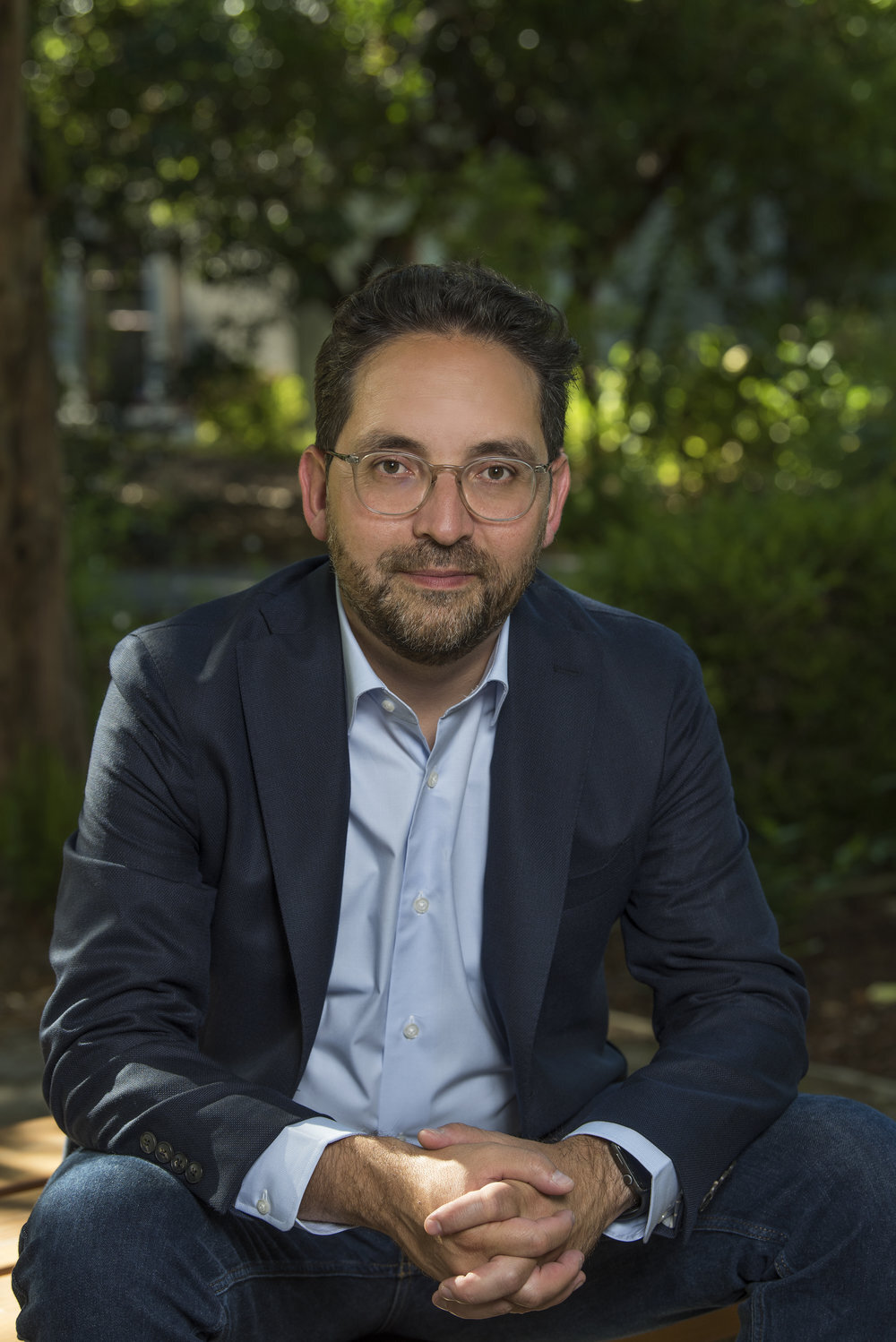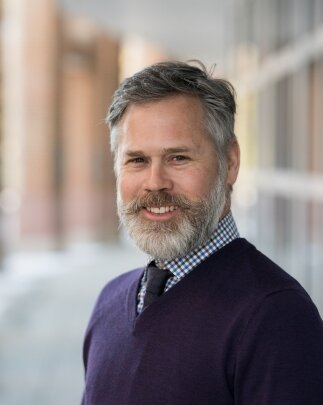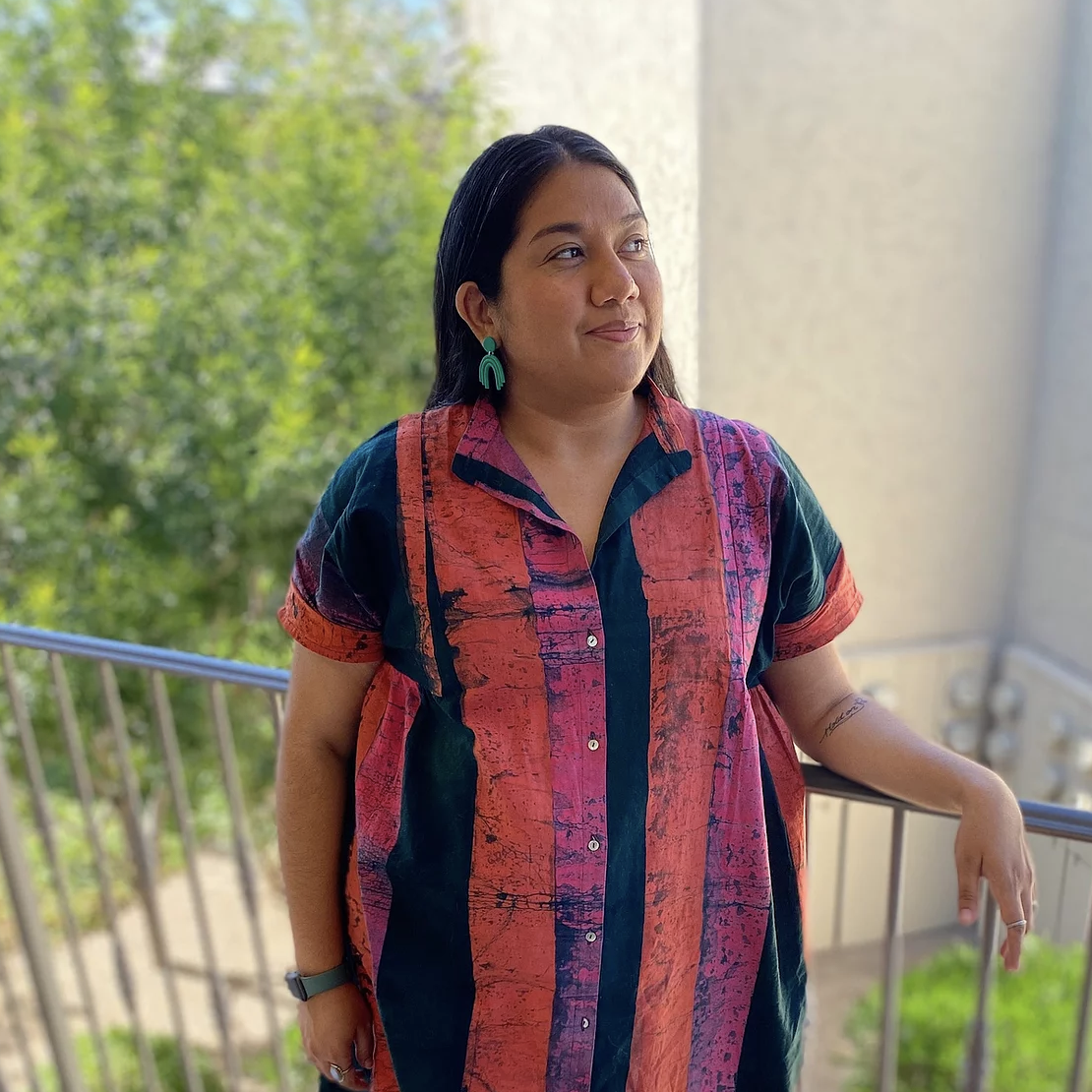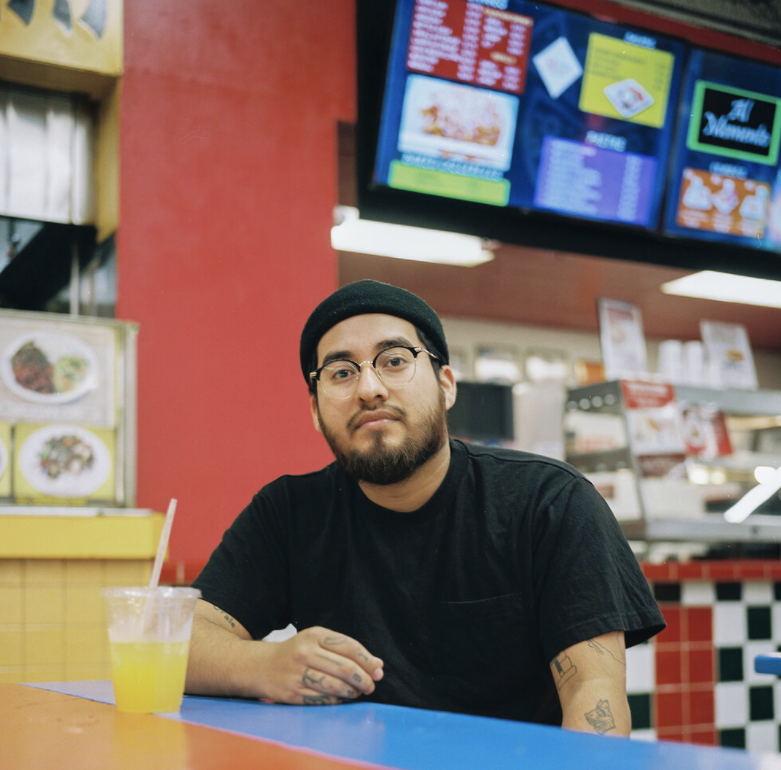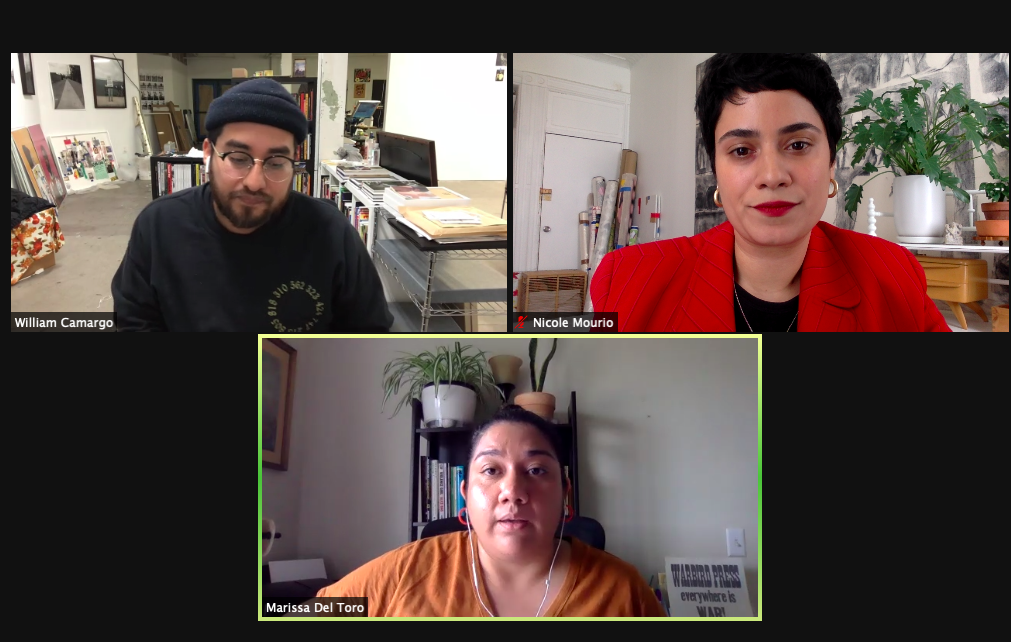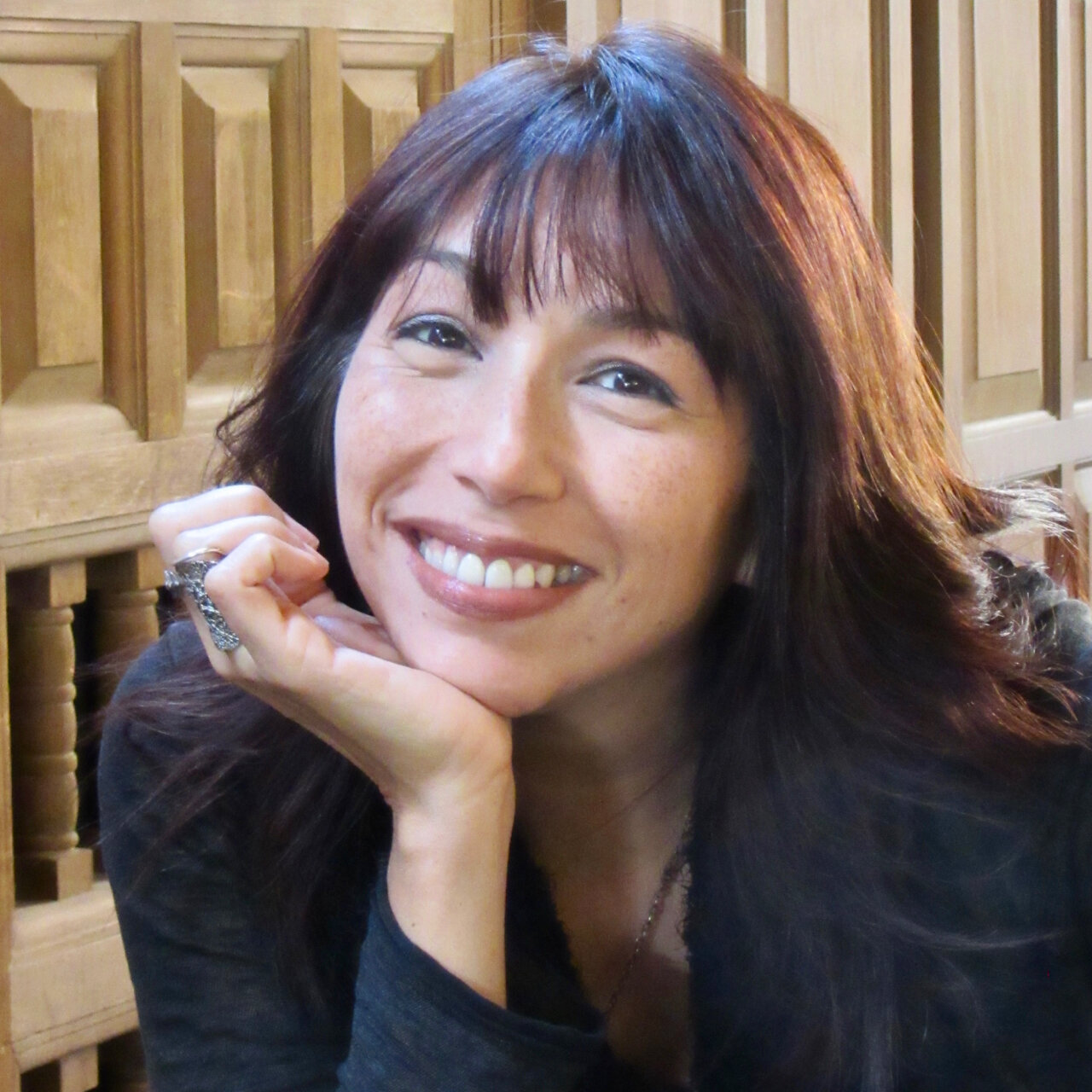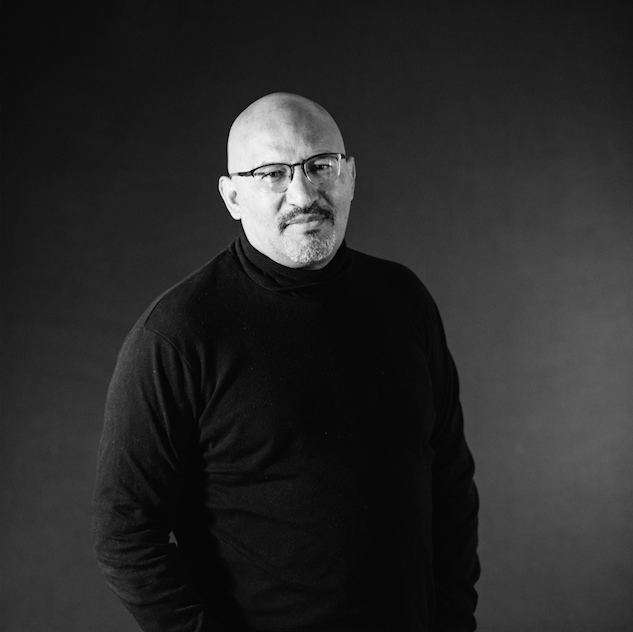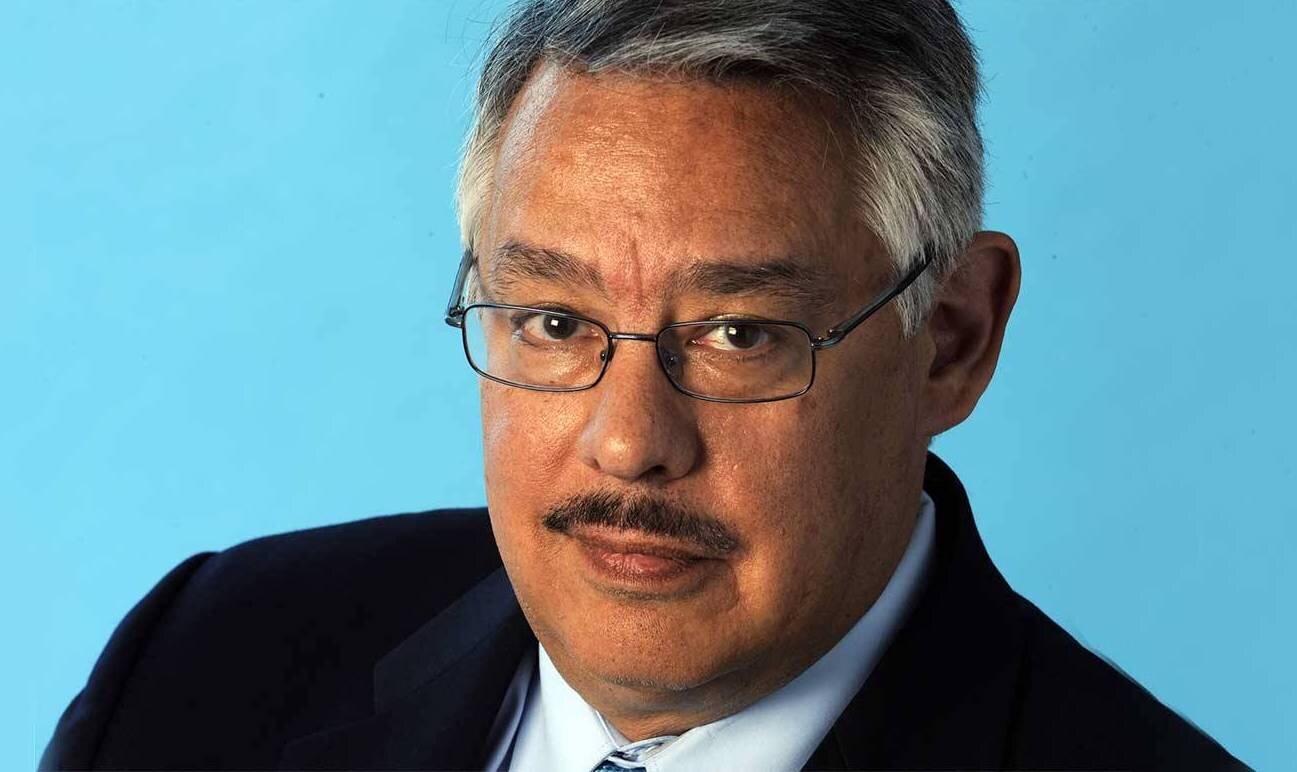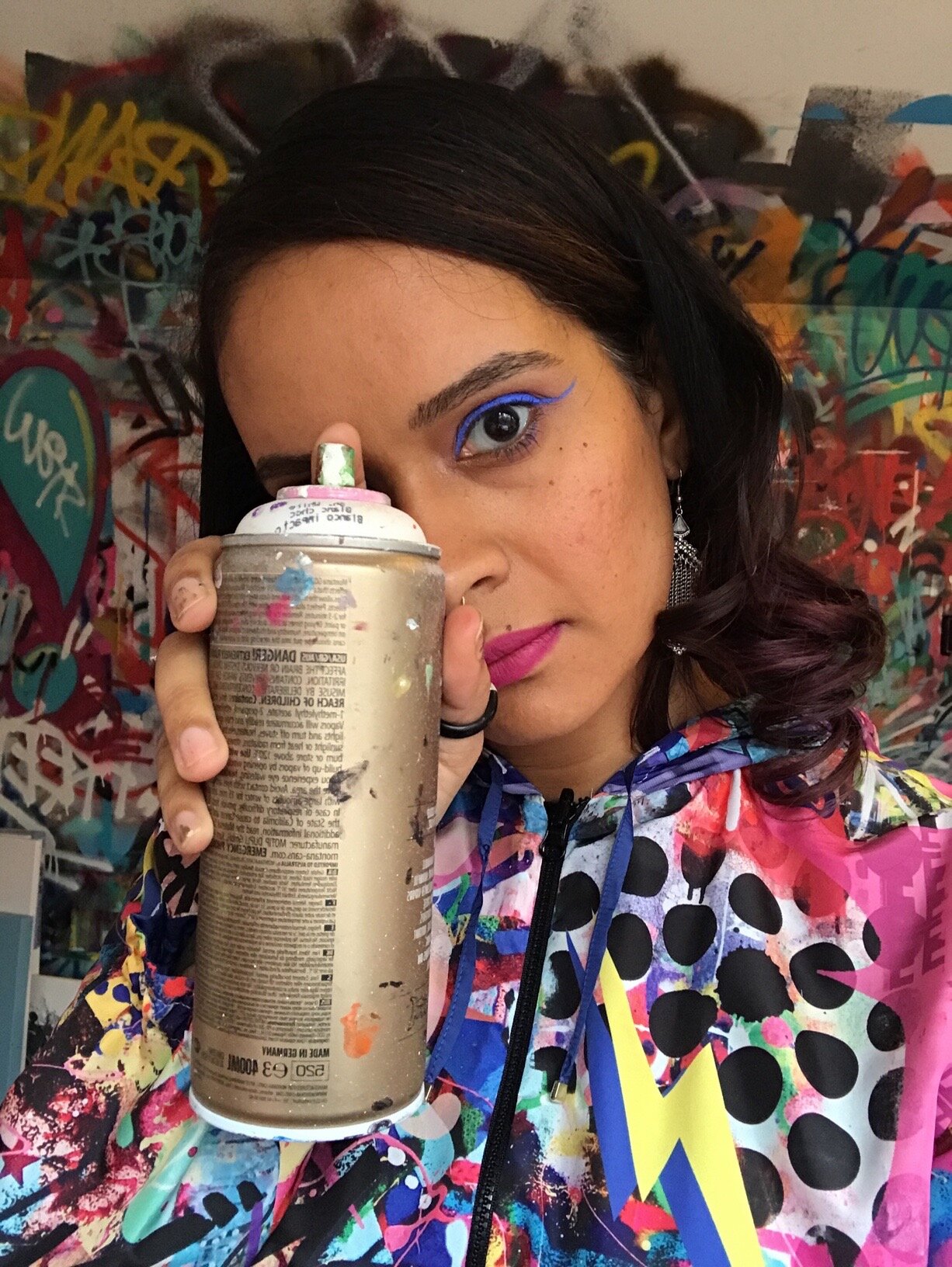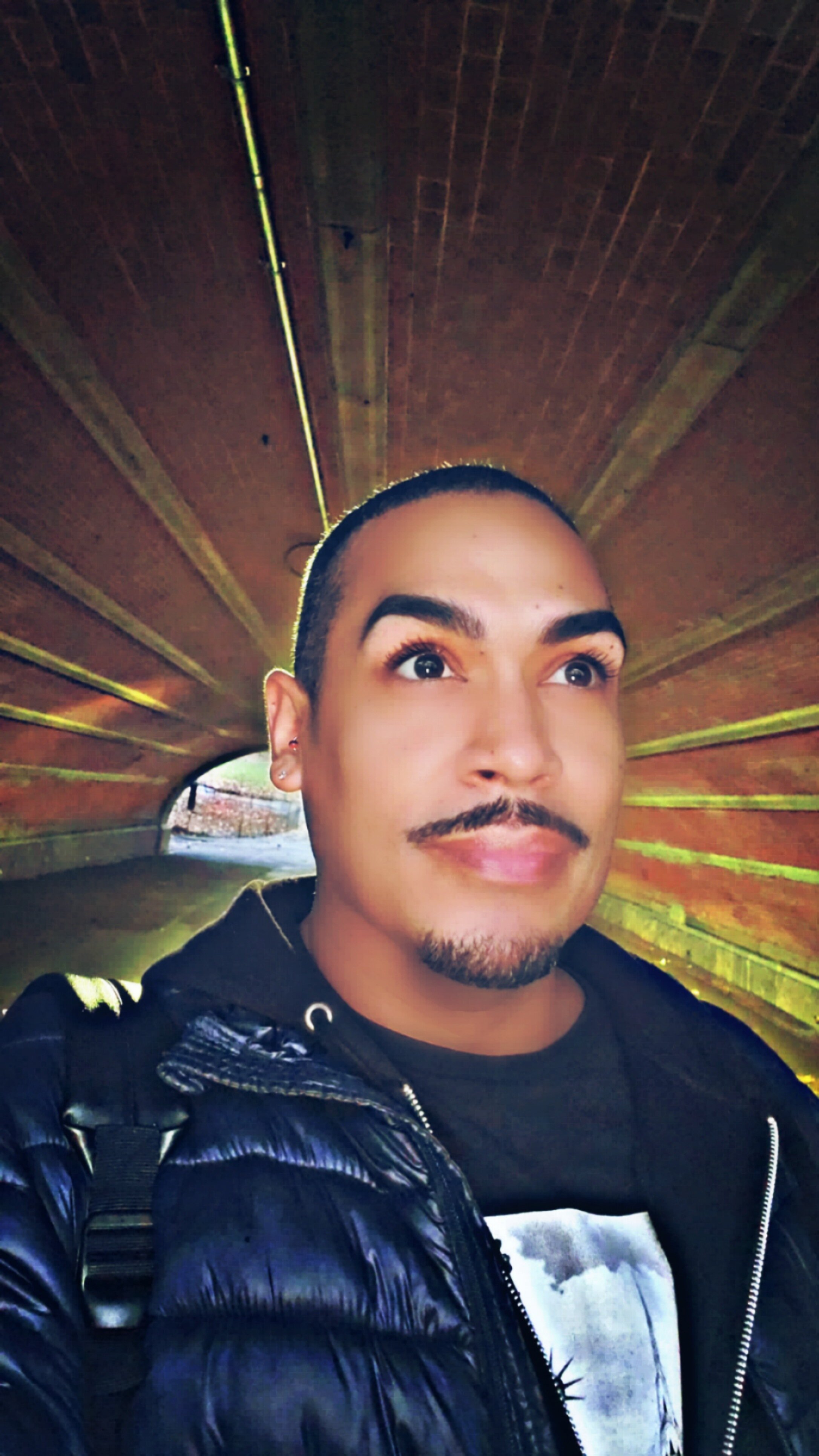
Streaming Culture: The Impact of Latinx and Latin American Content
This event has been postponed to FA '21.
Over the last several years, streaming giants like Netflix and HBO Max have taken an active interest in diversifying their programming. For Latinx and Latin American audiences, the attempts have generated mixed reviews and questions on what authentic storytelling entails.
Moderated by Juan Piñon, Associate Professor of Media, Culture, and Communication at NYU Steinhardt, the panel will discuss the business of streaming Latinx and Latin American stories.
Panelists
Alejandro J. Rojas serves as Director of Applied Analytics at Parrot Analytics based in New York . In his current role, he oversees initiatives that transform data into insights at every step of the content lifecycle. Alejandro is a former McKinsey consultant who went on to become an executive producer on multiple TV series in his native Venezuela. He's earned advanced degrees from MIT and UC Berkeley and is a current member of the International Academy of Television Arts and Sciences.
Jessica Vargas is director, Multicultural Marketing, at Warner Media, working across the HBO Max portfolio, responsible for the strategic and creative oversight of targeted marketing efforts and business initiatives to the network’s Latino audiences. This includes HBO, HBO Latino, and all of HBO’s digital platforms. She was named to this position in October 2015.
Among her most recent accomplishments at HBO, Jessica led the successful launch of HBO Max’s new audience initiative, Pa’lante! an always-on social platform to engage the Latinx audience with the purpose of representing, celebrating, and empowering the community and ultimately driving retention, loyalty, and viewership growth. In the past 3 years, she has also launched a Latino Stand-Up competition, a Latinx Short-Film competition, and an inner-city school program bringing the arts to students of color.
Jessica has also led the development of award-winning marketing campaigns for Habla y Vota (Mosaic Media Image Award for Advocacy & New York Festival Award Certificate), El Hipnotizador (Festival Iberoamericano de Promociones y Eventos (Grand Prix Crystal)), Alejandro Sanz + Carlos Santana (National Association for Multi-ethnicity in Communications (NAMIC) Excellence in Multicultural Marketing Award (EMMA)), and Yandel (New York Festival Award, Bronze World Medal).
Ariana Case is the program administrator at the Annenberg Inclusion Initiative. She received her B.A. in Communication from the Annenberg School for Communication and Journalism at USC. Since her days as an undergraduate, Case has conducted research with the Annenberg Inclusion Initiative on diversity and inclusion across the entertainment industry. As a senior researcher on Dr. Stacy L. Smith’s team, Case has been at the forefront of championing authentic storytelling, including for the Latinx and Latin American community in the 2019 Report — Latinos in Film: Erasure On Screen and Behind the Camera Across 1,200 Popular Movies. Case is a co-author on this in-depth examination of the prevalence and portrayal of Latinos in popular films and is currently leading the research in a follow-up analysis.
Most recently, Case co-authored Inclusion in Netflix Series & Films: 2018-2019, a report commissioned by the streaming company to examine inclusion on-screen and behind the camera in scripted content. In addition to her ongoing efforts promoting diversity in media, Case has also acquired experience working in cable television and in the nonprofit sector, has an avid interest in the interaction of American pop culture with society at large, and is a lifelong Southern Californian.
Juan Piñon is an Associate Professor of Media, Culture, and Communication at NYU Steinhardt. He's particularly interested in the intersection of Latin American transnational media corporate dynamics with the established mode of production of U.S. Latino media and the effects on Latinos' representations. His research interests are globalization, political economy, television studies and social and cultural practices. Currently, he is the U.S. coordinator of the Ibero-American Television Fiction Observatory (OBITEL) an international research project on television fiction. He has also contributed to an ongoing project about new technologies and media appropriation within disempowered communities in Austin, Texas project in which his particular interests lie in the immigrant Hispanic community's life trajectories and strategies of social mobility. Pinon's work experience dates back to the early eighties, when he first worked as a television producer in Mexico City, to become later on the Manager of Programming and Production at a regional television channel in Chihuahua, Mexico. His experience in academic institutions includes working as the Director of the Media Center at the Instituto Tecnolo y de Estudios Superiores de Monterrey, in Mexico City, where he was also Assistant Professor in the Department of Communication from 1994 to 2002. He holds a Ph. D. in Media Studies from the Department of Radio, Television and Film from the University of Texas at Austin, and a master degree in Communication Sciences from the Universidad Iberoamericana at Mexico, City.

Cities Collaborative at NYU, Pre-Existing Conditions: 2020 in Historical Perspective Series
The COVID-19 pandemic revealed the dangers of precarious public-facing employment. Hosted by Cities Collaborative at NYU and co-sponsored by The Latinx Project, join this roundtable where three major scholars consider place “essential work”–in the service sector, food preparation, and health care–in broad historical perspective, with attention to Latinx, African American, and women workers who have borne the brunt of high risk, poorly paid, insecure work.
Speakers
Natalia Molina is Professor of American Studies and Ethnicity at the University of Southern California. A 2020 Macarthur Fellow, she is the author of Fit To Be Citizens? Public Health and Race in Los Angeles, 1879-1939 and How Race Is Made in America: Immigration, Citizenship, and the Historical Power of Racial Scripts. She has also served as her university’s Associate Vice Chancellor for Faculty Diversity and Equity.
Marcia Chatelain is a Professor of History and African American Studies at Georgetown University. She is author of South Side Girls: Growing Up in the Great Migration and the widely reviewed book, Franchise: The Golden Arches in Black America. In 2014 she organized her fellow scholars in a social-media response to the crisis in Ferguson, Missouri, entitled #FergusonSyllabus. #FergusonSyllabus has led to similar online initiatives and has shaped curricular projects in K–12 and university settings around the United States.
Gabriel Winant is an Assistant Professor of History at the University of Chicago. He is author of The Next Shift: The Fall of Industry and the Rise of Health Care in Rust Belt America. His writing about work, inequality, and capitalism in modern America has appeared in The Nation, The New Republic, Dissent, and n+1.

Ciguapa Unbound: Blackness, Gender & Transnational Geographies of Marronage
It all begins with an idea. Maybe you want to launch a business. Maybe you want to turn a hobby into something more. Or maybe you have a creative project to share with the world. Whatever it is, the way you tell your story online can make all the difference.

Latinx History Faculty Working Group - Speaker Series
This speaker series, organized by Latinx History Faculty Working Group lead Irvin Ibarguen, features Jessica Ordaz, Assistant Professor of Ethnic Studies at the University of Colorado Boulder; Geraldo Cadava, Professor of History and Latina and Latino Studies at Northwestern University; and Matthew J. Garcia, Professor of History and Latin American, Latino, and Caribbean Studies at Dartmouth College.
Speakers
Tuesday, April 20th, 4:00 - 5:30pm EST - Jessica Ordaz joins us to deliver a book talk on her newly published project The Shadow of El Centro: A History of Migrant incarceration and Solidarity.
Bounded by desert and mountains, El Centro, California, is isolated and difficult to reach. However, its location close to the border between San Diego and Yuma, Arizona, has made it an important place for Mexican migrants attracted to the valley’s agro-industrial economy. After WWII, it also became home to the El Centro Immigration Detention Camp. The book follows how the camp evolved, eventually into the Immigration and Customs Enforcement Service Processing Center of the 2000s. In effect, it shows how El Centro became a national template for the detainment of migrants—a place where the policing of migration, the racialization of labor, and detainee resistance coalesced.
Wednesday, April 28th, 3:30 - 5:00pm EST - Geraldo Cadava, Professor of History and Latina and Latino Studies at Northwestern University, will join interested readers to discuss his book, The Hispanic Republican: The Shaping of an American Political Identity, from Nixon to Trump. Irvin Ibarguen, Assistant Professor of History at NYU, will moderate the conversation.
Monday, May 10th, 4:00 - 5:30pm EST - Matthew J. Garcia, Professor of History and Latin American, Latino, and Caribbean Studies at Dartmouth College, will join interested readers to discuss his book, From the Jaws of Victory: The Triumph and Tragedy of Cesar Chavez and the Farm Worker Movement. Irvin Ibarguen, Assistant Professor of History at NYU, will moderate the conversation.

In Convo: Curator Marissa Del Toro and A.I.R. William Camargo
A cross-promotional virtual conversation between Cruising the Horizon: New York curator Marissa Del Toro, and current A.I.R. William Camargo. The discussion will center around the arts professionals' respective curatorial and photography careers; along with a focus on their latest endeavors and work produced during quarantine, their most recent and main sources of inspiration, as well as their visions for their future paths.
Panelists
Marissa Del Toro is an independent curator and art historian of contemporary, modern, and ancient art of the Americas (primarily Latin America and the US). In both her professional and personal life, she continues to work towards the promotion and advocacy for diverse narratives within art. She previously held positions as the Curatorial Fellow at Phoenix Art Museum 2018-2020, Santa Barbara Museum of Art from 2017-2018, and the Getty Research Institute as a Graduate Intern from 2016-2017. She was Curatorial Assistant Intern for the UTSA Art Gallery from 2015-2016; and participated in the 2015 Latino Museum Studies Program at the Smithsonian Latino Center. She graduated from the University of Texas at San Antonio with her MA in Art History and is originally from Southern California, where she received her BA in Art History from the University of California, Riverside.
William Camargo is an Arts Educator, Photo-Based Artist, and Arts Advocate born and raised in Anaheim, California. He is currently serving as Commissioner of Heritage and Culture in the city of Anaheim and holds an M.F.A at Claremont Graduate University. Camargo is the founder and curator of Latinx Diaspora Archives, an archive Instagram page that elevates communities of color through family photos. He attained his BFA at the California State University, Fullerton, and an AA from Fullerton College in photography.
William has held residencies at Project Art, the Chicago Artist Coalition, ACRE, and at LA Summer held at Otis School of Art and Design. He has also participated in the New York Times Portfolio Review, NALAC's (National Association of Latino Arts & Culture) Leadership(2018), and Advocacy(2020) Institutes. He is a current member of Diversify Photo an initiative started to diversify the photography industry. He was awarded the Friedman Grant and J. Sonneman Photography Prize from CGU and has given lectures at the University of Wisconsin-Parkside, Gallery 400(Chicago), University of San Diego, Cal State Long Beach, the Claremont Colleges, and USC Roski School of Art, Stanford(upcoming).
Event Recap
The Latinx Project hosted a conversation between Cruising the Horizon: New York curator Marissa Del Toro, and current A.I.R. William Camargo. The two discussed their experiences as arts professionals during the pandemic, their work with TLP, and what they envision for the future.
Camargo’s current show with The Latinx Project, Negotiated Frontiers, curated by Dalina A. Perdomo Álvarez, brings together selections from three bodies of work that negotiate space and interrogate the artist’s positionality while aiming to deconstruct the photographic canon. Del Toro brought up the importance of Camargo’s use of rasquachismo sensibilities and the ability to “make do with what you got” (Del Toro) in one of his works, All That I Can Carry. The project came to life during the COVID-19 lockdown while the artist was at home with his family, invoking a rasquachismo sensibility by using household items that his parents have kept throughout the years and through the purchase of their first family home.
“Rasquachismo is a sensibility that is not elevated and serious but playful and elemental. It finds delight and refinement in what many consider banal, and projects an alternative aesthetic—a sort of good taste of bad taste.”
Rasquachismo by Tomás Ybarra-Frausto
Access to housing and financial security were also among the topics of conversation for the arts professionals, as both are never guaranteed for BIPOC communities. Many art workers lost several forms of income due to the pandemic and were given little support by institutions that already undervalue their labor. Del Toro shared that the pandemic had forced her to move back in with her parents in 2020, but that she would be making the move to the East Coast in July.
Formerly slated to exhibit at the Phoenix Museum, Cruising the Horizon: New York, curated by Del Toro made its way onto TLP’s website where it would become our third virtual show. She explains that “the works in this virtual exhibition move viewers to exist and express themselves freely and radically, without the oppressive conditions, restrictions, and boundaries of normative expectations and performances, especially in terms of gender and sexuality, majoritarian belonging, white supremacy and authoritarian systems.”
During the Q&A portion, an attendee asked “What are your big takeaways from the process of producing a digital exhibition, and advice for others who seek to do similar projects in the future?” Camargo stated the push to imagine a hybrid future for the arts experience moving forward that includes easily accessible resources to continue being an educator virtually as well. Del Toro agreed that now more than ever, virtual accessibility is key to be able to share knowledge with BIPOC communities; She also highlighted the value of building connections beyond the physical experience that allows for impactful storytelling and messaging.
Yvette Mayorga, a multidisciplinary artist based in Chicago, also posed the question of “How institutions can support arts professionals besides collecting and exhibiting?” Both Camargo and Del Toro agreed that the first step towards institutional accountability would be to value art workers’ labor and pay them respectful and livable wages. They can also support individual artists, curators, arts historians, and archivists, by providing timely resources to see their project’s come to fruition.
Camargo was recently announced as a finalist for Aperture’s Portfolio Prize, and Del Toro will spend the next year co-curating and developing, Xican-a.o.x. Body, an exhibition where select works from Camargo will also be shown.

Book Talk, Figures of the Future
Michael Rodríguez-Muñiz is assistant professor of Sociology and Latina/o Studies at Northwestern University. His current research focuses on ethnoracial knowledge and Latinx politics. His first book, Figures of the Future: Latino Civil Rights and the Politics of Demographic Change, is forthcoming with Princeton University Press. He is the winner the 2016 American Sociological Association Dissertation Award and has published in the American Journal of Sociology, American Journal of Cultural Sociology, Ethnography, Qualitative Sociology, and Engaging Science, Technology & Society, and several edited volumes. His next major research project will explore the history of Puerto Rican radicalism, memory, and state repression in Chicago.
Cristina Beltrán, Ph.D., works at the intersection of Latinx politics and political theory. She is an associate professor and director of graduate studies in the Department of Social and Cultural Analysis at New York University. Her work has appeared in Political Theory, the Du Bois Review, Aztlán: A Journal of Chicano Studies, Political Research Quarterly, and various edited volumes. She is currently the co-editor of Theory & Event, a peer-reviewed journal that publishes work by scholars working at the intersections of political theory, cultural theory, political economy, aesthetics, philosophy, and the arts. She is also an occasional guest on MSNBC.
Her latest book Cruelty as Citizenship: How Migrant Suffering Sustains White Democracy explores the American right’s deep antipathy toward nonwhite migrants from Mexico and Latin America and examines why acts of cruelty against migrants are so gratifying (and even pleasurable) for many in the Republican Party.
Event Recap
Moderated by The Latinx Project’s very own Cristina Beltrán, this energizing and intellectual book talk welcomed Michael Rodríguez-Muñiz as he discussed his upcoming book Figures of the Future: Latino Civil Rights and the Politics of Demographic Change. Together, Muñiz and Beltrán discussed a vital issue in today’s political world – that is, the particular political present that is flooded with ideas, images, and infographics about the future ethno-racial composition of the United States. Their conversation questioned the multilayered approach of political advocacy groups in the United States, particularly the ways in which the “browning of America” has simultaneously been used as a tool and as a weapon in the country’s recent history. Followed by a stimulating Q&A with event attendees, Muñiz left the audience with invaluable insight on the undeniable politics of ethno-racial demographic changes, a phenomenon he labels as “population politics” in his book, and challenged us to think differently about the United States’ political future.
For more, watch the recording below!
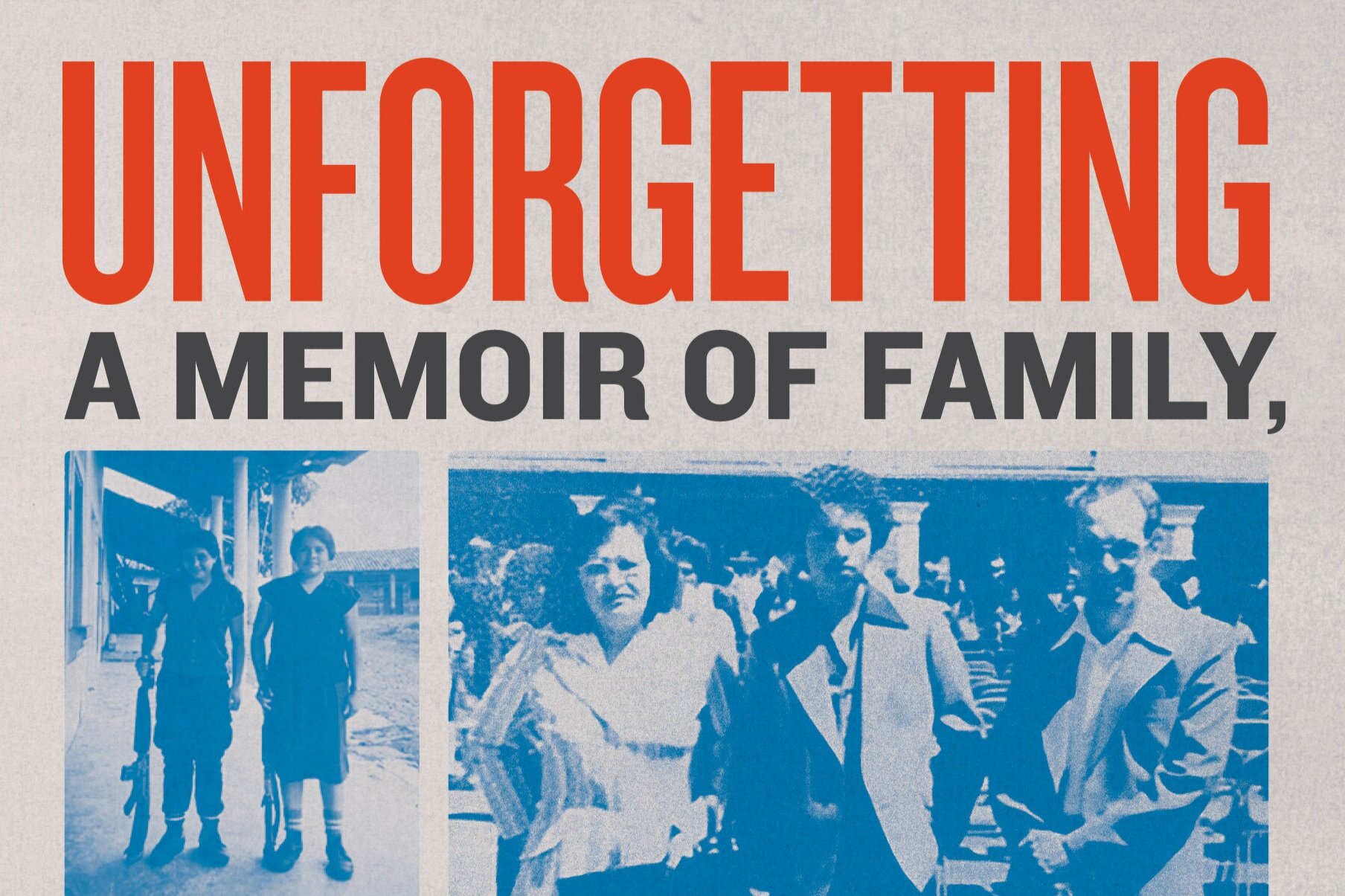
Unforgetting — Family, Migration, Gangs, and Revolution in the Americas
Author Roberto Lovato and award-winning broadcast journalist Juan González discuss Lovato’s book, Unforgetting: A Memoir of Family, Migration, Gangs and Revolution in the Americas.
Co-sponsored by the Center for Latin American and Caribbean Studies (CLACS).
Roberto Lovato is the author of Unforgetting: A Memoir of Family, Migration, Gangs and Revolution in the Americas (Harper Collins), a New York Times “Editor’s Choice” that the paper also hailed as a “groundbreaking memoir” that is “powerful.” Newsweek listed Lovato’s memoir as a “must read” 2020 book and the Los Angeles Times listed it as one of its 20 Best Books of 2020. Lovato is also an educator, journalist and writer based at The Writers Grotto in San Francisco, California. As a Co-Founder of #DignidadLiteraria, he helped build a movement advocating for equity and literary justice for the more than 60 million Latinx persons left off of bookshelves in the United States and out of the national dialogue. A recipient of a reporting grant from the Pulitzer Center, Lovato has reported on numerous issues—violence, terrorism, the drug war and the refugee crisis—from Mexico, Venezuela, El Salvador, Dominican Republic, Haiti, France and the United States, among other countries.
Juan Gonzalez is an award-winning journalist with a career that has spanned nearly 40 years. He was a staff columnist for New York’s Daily News from 1987 to 2016 and has been a co-host for more than two decades of Democracy Now, a daily morning news show that airs on more than 1,300 community and public radio and television stations across the US and Latin America.
His investigative reports on urban policy, race relations, the labor movement and Latin America have garnered numerous accolades, including two George Polk Awards for commentary. Gonzalez has authored five books, including Harvest of Empire: A History of Latinos in America, Reclaiming Gotham: Bill de Blasio and the Movement to End America’s Tale of Two Cities; News for All the People: The Epic Story of Race and the American Media; and Fallout: The Environmental Consequences of the World Trade Center Collapse.
One of the original founders of the National Association of Hispanic Journalists (NAHJ), Gonzalez served as the group’s president from 2002-2004 and was named to its Hall of Fame in 2008. Before he entered journalism, Gonzalez was a well-known 1960s activist, as a key figure of the Columbia University student revolt of 1968, and later as a leader of the militant Puerto Rican group the Young Lords, and of the National Congress for Puerto Rican Rights.
Event Recap
The Latinx Project was thrilled to have Roberto Lovato join us to discuss and share excerpts from his new book, Unforgetting: A Memoir of Family, Migration, Gangs, and Revolution in the Americas. Unforgetting focuses on the larger issues that have plagued El Salvador such as civil war, gang violence, and migration, as well as Lovato’s own, more personal relationship to these concerns. He was joined in conversation by renowned author and journalist Juan Gonzalez, who engaged with him on the book’s central themes and implications for the contemporary moment of crisis in Central America. Their conversation highlighted the changing Latinx demographics in the US, as well as the need to combat the erasure of Central American stories, understand migration as the result of US-sponsored neoliberalism, violence, and climate change; and confront the deep histories of Central American issues. Lovato concluded with a call to militancy in approaching the telling of these stories, hoping to combat the exclusion of Central Americans in journalism and publishing.
He also left attendees with a list of Central American scholars, writers, and activists that are currently transforming these discussions: Leisy Abrego, Suyapa Portillo, Eduardo Contreras, Carlos Cordoba, Esteban Ozuna, Esmeralda Bermudez, Javier Samora, William Archilla, Esther Hernandez, and the contributors of The Wandering Song.
For more, watch the recording below!

Cruising the Horizon - Artist Panel
It all begins with an idea. Maybe you want to launch a business. Maybe you want to turn a hobby into something more. Or maybe you have a creative project to share with the world. Whatever it is, the way you tell your story online can make all the difference.

The State of Latinx Photography
It all begins with an idea. Maybe you want to launch a business. Maybe you want to turn a hobby into something more. Or maybe you have a creative project to share with the world. Whatever it is, the way you tell your story online can make all the difference.
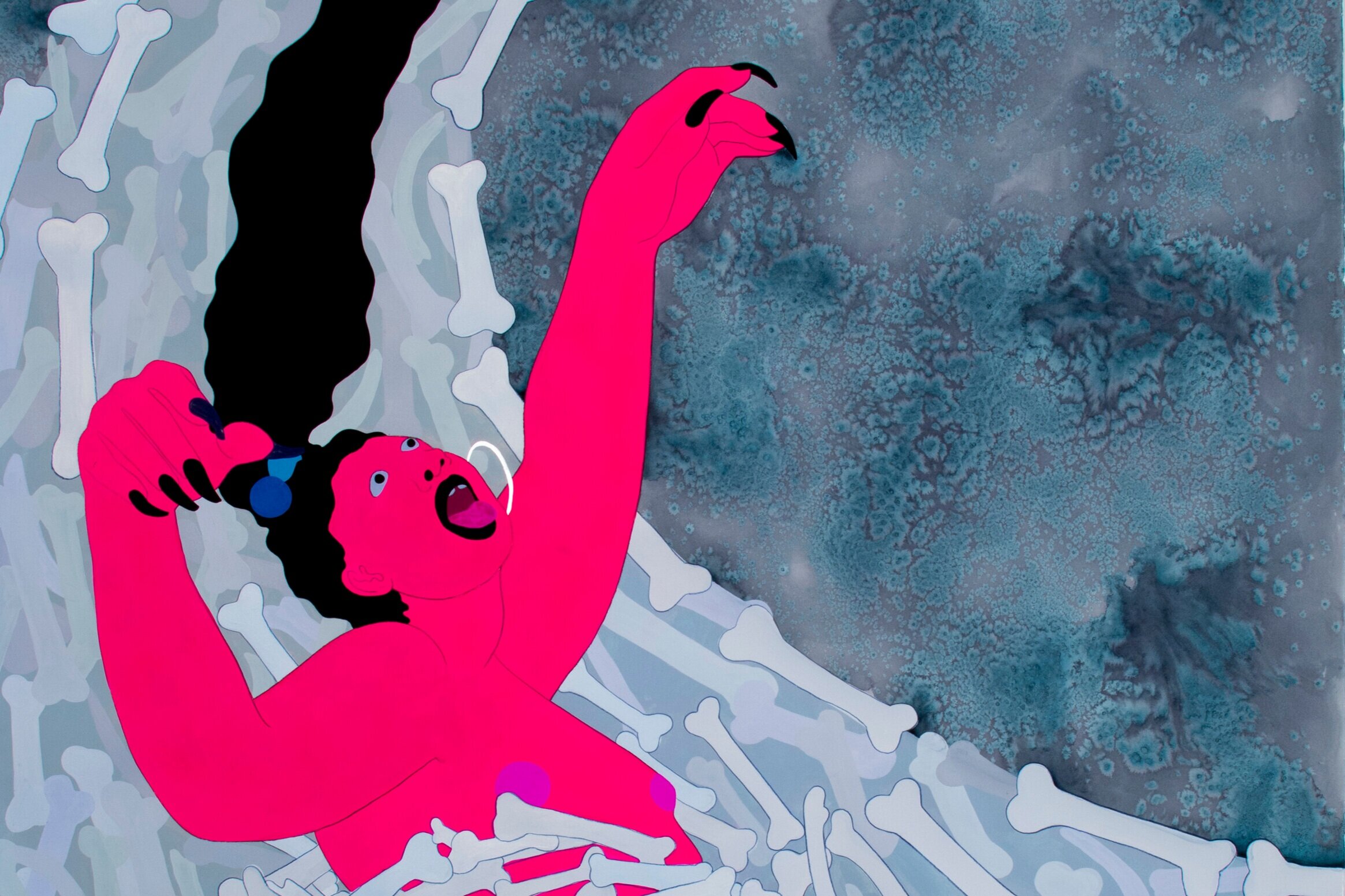
Cruising the Horizon (Exhibition)
It all begins with an idea. Maybe you want to launch a business. Maybe you want to turn a hobby into something more. Or maybe you have a creative project to share with the world. Whatever it is, the way you tell your story online can make all the difference.

We Are Here Book Roundtable
A book launch and panel discussion with Jasmin Hernandez, founder of Gallery Gurls, and Indie 184, Untitled Queen, Luna Luis Ortiz and Gabriella Sanchez. Centering BIPOC, with a particular focus on queer, trans, nonbinary, and BIWOC, Hernandez’s We Are Here: Visionaries of Color Transforming the Art World (Abrams; February 2, 2021) features 50 intimate interviews that engage with each artist and influencer, delving into their creative process and unpacking how each subject actively works to create a more radically inclusive world across the entire art ecosystem. A celebration of compelling intergenerational creatives making their mark, We Are Here shows a path for all who seek to see themselves in art and culture. Hernandez and the panelists will share, reflect, and discuss life lessons from navigating 2020 as Black and Brown Latinx artists and creatives, and embarking on growth for the new decade.
This event is co-sponsored by Sulo: The Philippine Studies Initiative at NYU (SPSI).
Panelists
Indie 184, or Soraya Marquez (born 1980), is an artist and native New Yorker of Dominican descent who has been active in the graffiti culture for over 2 decades. Determined to express herself to the world through art, she quit business college to teach herself how to sew, paint and produce graphic design. Also influenced by abstract expressionism and pop art, her paintings are raptures of color and textures. Fused with her original graffiti and street art, imagery, and designs juxtaposed with personal messages. Indie’s art has been exhibited in galleries and museums worldwide, including El Museo del Barrio in New York City and Völklingen Ironworks Museum, in Saarbrücken Germany, Museo de Bellas Artes De Murcia in Spain, as well as numerous solo and group gallery exhibitions. Her graffiti and mixed media murals can be found in the streets, from the South Bronx to Paris. Her most recent collaborations have been with Rimmel London as Chief Artistic Officer, Apple Beats1 Radio, Lionsgate Films, MTV Networks and a capsule clothing collection with iBlues. Catch her creating her latest work in the streets, designing or painting in her studio.
Untitled Queen, also known as Matthew de Leon, is a Boricua / Filipinx artist, drag queen, decolonizer, and community organizer based in Brooklyn, NY. She is the recipient of the Drag Queen of the Year 2015 for the Brooklyn Nightlife Awards. She is a resident performer at Rupaul's Drag Race Season 9 Winner Sasha Velour’s Nightgowns. She recently presented Untitled (World), the first global LGBTQIA+ digital drag show, with 47 drag artists each representing 1 country. The event raised funds for 3 global HIV organizations in honor of World AIDS Day.
Luna Luis Ortiz is an award-winning artist and activist born in New York City to Puerto Rican parents in 1972. From an early age, Luna was creative by drawing and coloring pieces of art as he expressed himself vividly, shocking his mother who was in awe. In 1986, he was infected with HIV at the age of 14 by his first sexual encounter. This began his life with photography. Not knowing how to live and deal with HIV, Luna used photography as a way to document his life through self-portraits.
Creating a body of work, his photographs have been included in gallery exhibitions in New York, Michigan, Washington DC, and Paris, France, as well as the Boston Center of the Arts, Museum of the City of New York, and the New Museum of Contemporary Art in NY, all under the supervision of Visual AIDS. By 1989, he began his journey as an artist living with HIV and as a spokesperson for youth living with HIV. Luna has dedicated his life to HIV prevention and AIDS awareness for people around the world by appearing on MTV, VH1, PBS, Telemundo, Now This, Logo, NY1, MSNBC, ABC, and Time Out with Magic Johnson and Arsenio Hall, as well as Living in the Age of AIDS with Peter Jennings. Creating representation for "people who look like me," was important to Luna.
Luna had received letters of appreciation for his contributions from New York City Mayors Edward Koch and David Dinkins as well as the Distinguished Service Award from the State of New York. In 2015, Luna received The City of New York Proclamation from The City Council at City Hall for his 30-plus years of dedication in the fight against AIDS. As a public speaker, he has been invited to share his life story and art at New York University, Cornell University, Sarah Lawrence College, Penn State University, Syracuse University, Yale University, Jersey City Museum, Whitney Museum, Queens Museum and American Folk Art Museum, NY.
Today, Luna continues to inspire and empower youth of color around the world with his stories and art. His passions as a father to LGBT youth give him the opportunity to continue to guide and support young people with love, compassion, and care.
Gabriella Sanchez (b. 1988, Pasadena, CA) is a Los Angeles-based cross-disciplinary artist whose work is rooted in painting and the exploration of social symbols. She worked for several years as a full time graphic designer on projects with Nike, Toyota and other such clients. She began exhibiting her paintings and works on paper in 2016, and her work has been exhibited at spaces such as Jeffrey Deitch (New York), Charlie James Gallery (LA), Páramo Galeria (Guadalajara), the Crocker Art Museum, LMAK Gallery NYC, and LA Louver. She has shown at various art fairs including Frieze LA, Armory New York, Zona Maco in CDMX, EXPO Chicago, and the Seattle Art Fair. Her work is in notable collections including LACMA, Crocker Art Museum, the JP Morgan & Chase Collection, and other private collections. Gabriella received her BFA in 2011 from PLNU in San Diego, CA and is represented by Charlie James Gallery in Los Angeles.
Jasmin Hernandez is a Black Latinx founder and editor in chief of Gallery Gurls. Her writing has appeared in Harper’s Bazaar, Paper, Bustle, ELLE, the Cut, Artnet, and more. Jasmin is the debut author of the forthcoming Abrams title,We Are Here: Visionaries of Color Transforming the Art World, releasing February 2021. She is a native New Yorker born to Dominican parents, based in Harlem, New York City. To learn more follow @gallerygurls.
Event Recap
In a stunning, open forum that doubled as a book launch, Jasmin Hernandez, founder of Gallery Gurls, curated a panel discussion centering her upcoming book We Are Here: Visionaries of Color Transforming the Art World. With Hernandez serving as moderator, the panel included four of the 50 Black and Brown artists and influencers featured in We Are Here — Indie 184, Untitled Queen, Luna Luis Ortiz, and Gabriella Sanchez. The author skillfully weaved together the narratives shared by these creatives to demonstrate the state of the U.S. art world and its view of BIPOC artists, while at the same time shining a spotlight on the way said artists face this marginalization by making their own spaces. “Making space” was the phrase of the evening, as each creative spoke candidly about their art, mentorship, creative survival, and how they each navigate performative activism.
For more, watch the recording below!

William Camargo: Negotiated Frontiers (Exhibition)
It all begins with an idea. Maybe you want to launch a business. Maybe you want to turn a hobby into something more. Or maybe you have a creative project to share with the world. Whatever it is, the way you tell your story online can make all the difference.


